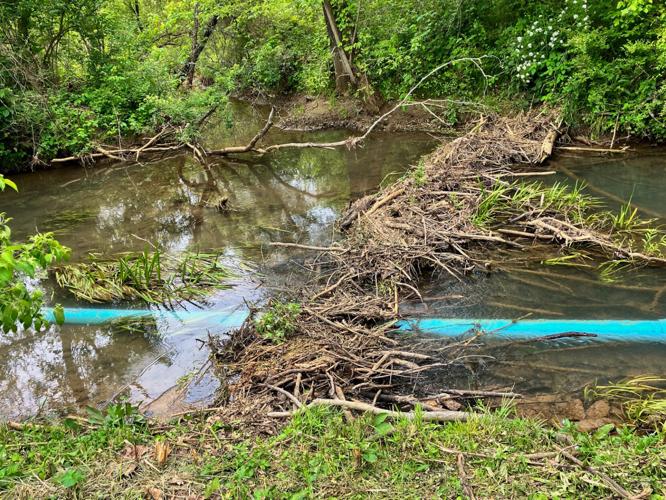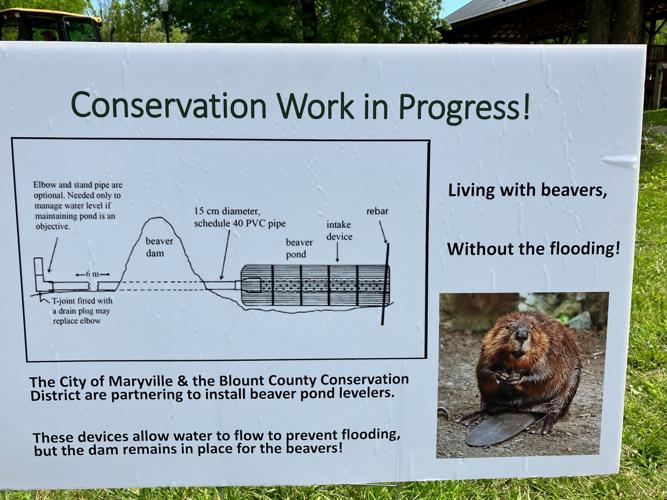This was a surprise, even for a girl like me who is usually braced for anything,

Conservation District Installs Levelers in Local Beaver Dams.
Conservationists and beaver aficionados have reason to celebrate — the furry, water-loving animals are making a comeback in Blount County.
“Their population has been coming back and growing,” Julie Konkel, watershed coordinator for the Blount County Soil Conservation District told The Daily Times. “That means we have dams on a lot of the streams and creeks around the area.”
Those dams promote a healthy ecosystem and even help manage stormwater, but there’s one major drawback:
Beaver dams, no matter how natural, change water levels. In the wild, the influx of water creates wetlands and helps foster the local ecosystem. But in an urban area, rising water levels can threaten infrastructure, business and the livelihoods of the people nearby.
The solution is called a beaver pond leveler. It’s essentially a length of pipe that runs through the dam from one end to the other. A cage caps the intake to keep beavers or other debris from blocking the flow of water. The result is the beavers get to keep their dam, and more water is able to flow uninterrupted, reducing the potential flooding.
“It’s a way to coexist and enjoy the benefits,” Konkel said.
WOW!!! Go Julie! The illustration shows a Clemson pond leveler so I dearly hope the paper found that and she’s not using that illfated design, but wowwwwwwwwwwww Tennessee!
 She already has installed multiple levelers around the county, although she admitted she’s not an expert on the subject. She feels there is a growing desire among the public to live alongside wildlife like beavers and appreciate them without getting rid of them.
She already has installed multiple levelers around the county, although she admitted she’s not an expert on the subject. She feels there is a growing desire among the public to live alongside wildlife like beavers and appreciate them without getting rid of them.
“Along Pistol Creek, the greenway is right there,” Konkel said. “In a rain event, beaver dams can intensify flooding to the point that the greenway is not usable. And then there’s some instances where the beavers actually have about 11 dams, and they have created an entire backwater wetlands system over the years. As they’ve moved upstream, it’s really affected businesses.”
The alternative would be to kill the beavers or trap and relocate them to another area, but Konkel said removing them just leads to more beavers coming to take their place.
There are several kinds of levelers in existence, although the basic principle is the same for all. Konkel got plans from the Beaver Institute — a nonprofit organization that works to restore ecological balance between beavers and humans. The cost of installing one can range from under $1,000 to $2,000. Konkel has been able to construct some using grant money, while other times private citizens will pay for one on their property. She’s partnered with the city of Maryville’s grounds maintenance department to help with installations.
One of the benefits, she said, is that the levelers use common elements that are often involved in other projects. That meant Maryville has been able to save money by reusing extra materials from another effort on at least one occasion.
“I’ve done four or five now, and I have one pending,” Konkel said. “I keep getting requests. I’m really becoming more familiar with these systems and it seems like as people learn about them, there’s a rapidly growing demand.”
Wow. Just wow, Way to go Julia!






































